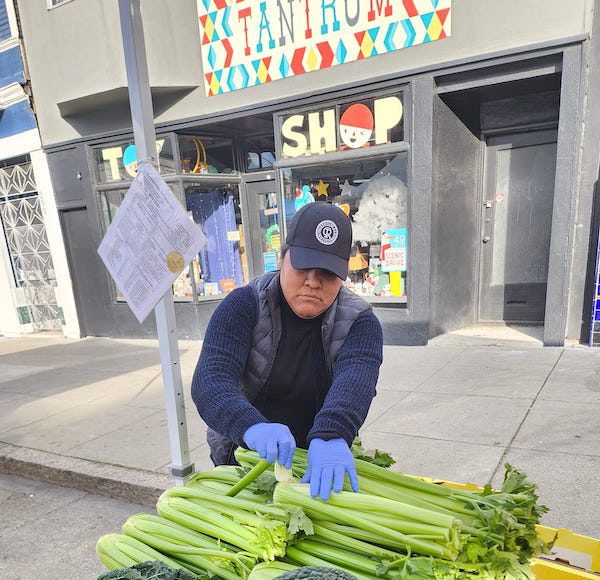Yadira Mendiola is proud to call herself an organic farmer.
After immigrating to the U.S. from Mexico 20 years ago, she has worked in nurseries and seed distributors throughout Salinas Valley. In the last few years, a local nonprofit has helped her become one of the Central Coast’s newest small farmers.
Now, her business, The Queen of Vegetables Organic Farm, is providing fresh organic vegetables to local schools and is doing it sustainably.
The Santa Cruz-based Sustainable Systems Research Foundation (SSRF) is running educational workshops in regenerative farming techniques for minority farmers in the area. By providing workshops to growers, the foundation is leading efforts to expand sustainable agriculture regionally.
“The foundation is passionate about agriculture and passionate about the environment, so I connected with them,” Mendiola says.
Mendiola first converted her own passion for agriculture into action in 2019, when she secured a three-acre plot at the Agricultural and Land-Based Training Association (ALBA) in Salinas.
“Regenerative agriculture is basically regenerating and sustaining the environment within which agriculture takes place,” says Ronnie Lipschutz, president of SSRF.
Regenerative agriculture is a blanket term for various forms of sustainable agriculture. Most commonly, this involves maintaining the soil’s carbon content through mineral restoration.This improves the productivity of the soil and helps the environment by retaining carbon.
Lipschutz and his colleague Kevin Bell formed the foundation in 2015 when both were professors at UC Santa Cruz. They set out to research four areas of interest: renewable energy, affordable housing, compostable products and agricultural technology.
They began holding workshops on uses of agricultural technology like greenhouses for small farms and they noticed that the turnout was largely Spanish-speaking farmers. Lipschutz says that it was a pivotal moment for the project and they decided to focus on that demographic, making the workshops bilingual. Last year, nearly 20 farmers participated.
Running the workshops costs about $60,000 a year and are made possible by state and federal grants and through fundraising drives, like Santa Cruz Gives.
Farmers from Santa Cruz, Santa Clara, San Benito and Monterey counties come to the workshops held throughout the Central Coast. Lipschutz says that the workshops are distilling heady agricultural science research into terms that farmers who are not familiar with U.S. agricultural practices can understand.
Soil health, composting, irrigation and erosion are some of the topics covered in the workshops. For 2024, Lipschutz says they will be focusing on farming as a business
“These are mostly farmworkers who have decided to go into farming. They and their families may have been farmers in Mexico. Obtaining land is a primary obstacle and so what they lease is usually less than 20 acres,” Lipschutz says.
Yadira Mendiola was able to secure a five-acre parcel of land in Royal Oaks, and has attended around six regenerative farming workshops. She is growing carrots, beets, tomatoes and other produce. She says that while it is grueling work, she is able to get by with some help from SSRF.
“They teach you how to access resources around you, like greenhouses and tractors, and getting in contact with local organizations that can help you economically,” Mendiola says.
SSRF is currently working with organizations like Community Alliance with Family Farmers and the Monterey Resource Conservation District to keep small farmers connected to resources and education.
Mendiola has faced some challenges in the last year—she lost most of her crop early last year due to the heavy rainstorms that devastated the area. But she’s not giving up.
“It’s a tough business and people always ask me why I keep going. I tell them that I am passionate and it feels good to know that my community is eating healthy food that I produce,” Mendiola says.














